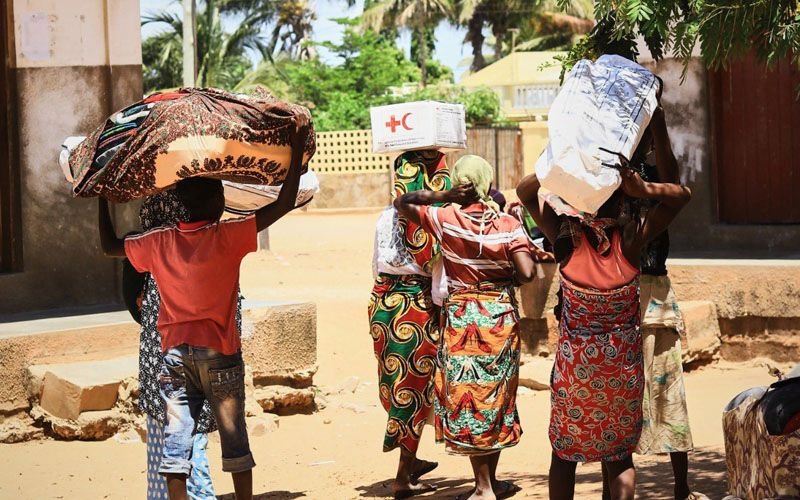PEMBA: The gunfire broke out before dawn, waking Aziza Falume as the jihadists mounted a new attack in their campaign in northern Mozambique.
Nine months pregnant, with no news of her fisherman husband, she had no choice but to flee.
Falume roused their five children and they made their getaway from the coastal village of Pangane. She gave birth on the run.
“I was sleeping and woke up around 4am to the sound of guns,” she told AFP, shaken as she recalled that terrible day in October.
Falume is one of tens of thousands of displaced people in Pemba, the capital city of gas-rich Cabo Delgado province, which has been gripped by deadly jihadist raids since 2017.
Around 2,300 people have died, many of them poor villagers, and some half-a-million people have fled their homes.
By good luck, Falume found her husband on the beach and the family boarded a small boat heading south.
They stopped at a nearby island and there the inevitable happened.
A baby named ‘Suffering’
“On our way to Pemba I started feeling labour pains. That was when we stopped at Qiziwe Island, where I gave birth, and after that we continued the journey to Pemba,” she said.
A baby girl named Awa, which translates into “Suffering” in the local Makhuwa language, was born in a small house on the island.
Breastfeeding Awa and flanked by the rest of her children, Falume is still haunted by the night of the attack.
“I am still afraid. I keep wondering when they (the jihadists) will land in Pemba and attack, or if any of them live among us,” she said.
The family has been taken in by a good Samaritan in Pemba, a town of 200,000 inhabitants before the crisis that has since nearly doubled in population.
The displaced arrive on overloaded fishing boats.
Falume’s husband Adji Wazir relived the torment of the hours before he was reunited with his family.
He was out fishing and failed to return home due to the fighting. “I just stayed on the boat,” he said.
The militants set the village ablaze and he lost everything.
“I don’t have anything left, I only have this boat,” he said pointing towards his fishing vessel.
He is grateful for the temporary shelter — a single room he is sharing with his family — “but our survival is difficult,” he said.
The family’s host is Atima Tawabo, a volunteer whose job is to record details of new arrivals in Paquitequete, the main landing district of Pemba.
“I asked them where they came from and where they were going,” said Tawabo.
“When they told me they had nowhere to go, I offered them my house.”
‘Nothing but my family’
Farida Muarabu, a 32-year-old mother of five, is their neighbour from the same village. She arrived in Pemba a few days after them.
Living with her mother, Muarabu is still traumatised by her chaotic escape.
The family fled into the forest, but in the thick of the night became separated from each other.
“My daughter disappeared in the forest,” she said, adding that her husband and son also vanished.
It was only three days later that she found her daughter.
With no news on the whereabouts of her husband and son, she boarded a boat to Pemba along with dozens of others.
There, she found shelter in her mother’s house. Twenty-six people, some who fled the violence from various parts of the province now squat there, with barely any food.
“My four children and their children are with me now. We have nothing to eat,” said her mother, Kazana Yakub.
Muarabu said she had nightmares of the attack, especially of children she saw drowning as they tried to cross a tidal waterway. She said she had lost her nephews.
“I sleep, but not so much. I have had sleepless nights,” she said.
She held out a ray of hope, that “one day all this will be over and I return home. I have nothing here, except my family.”

